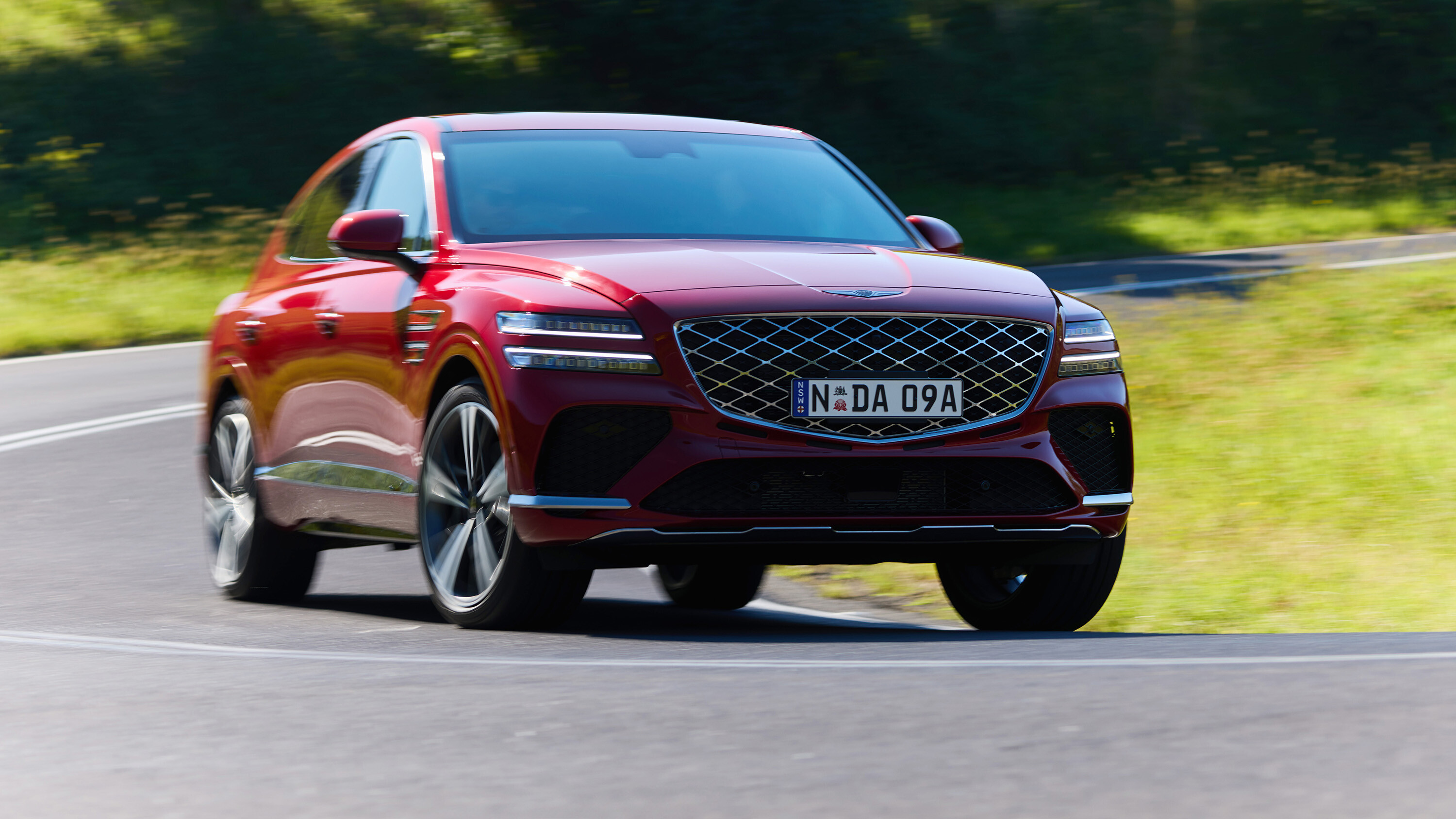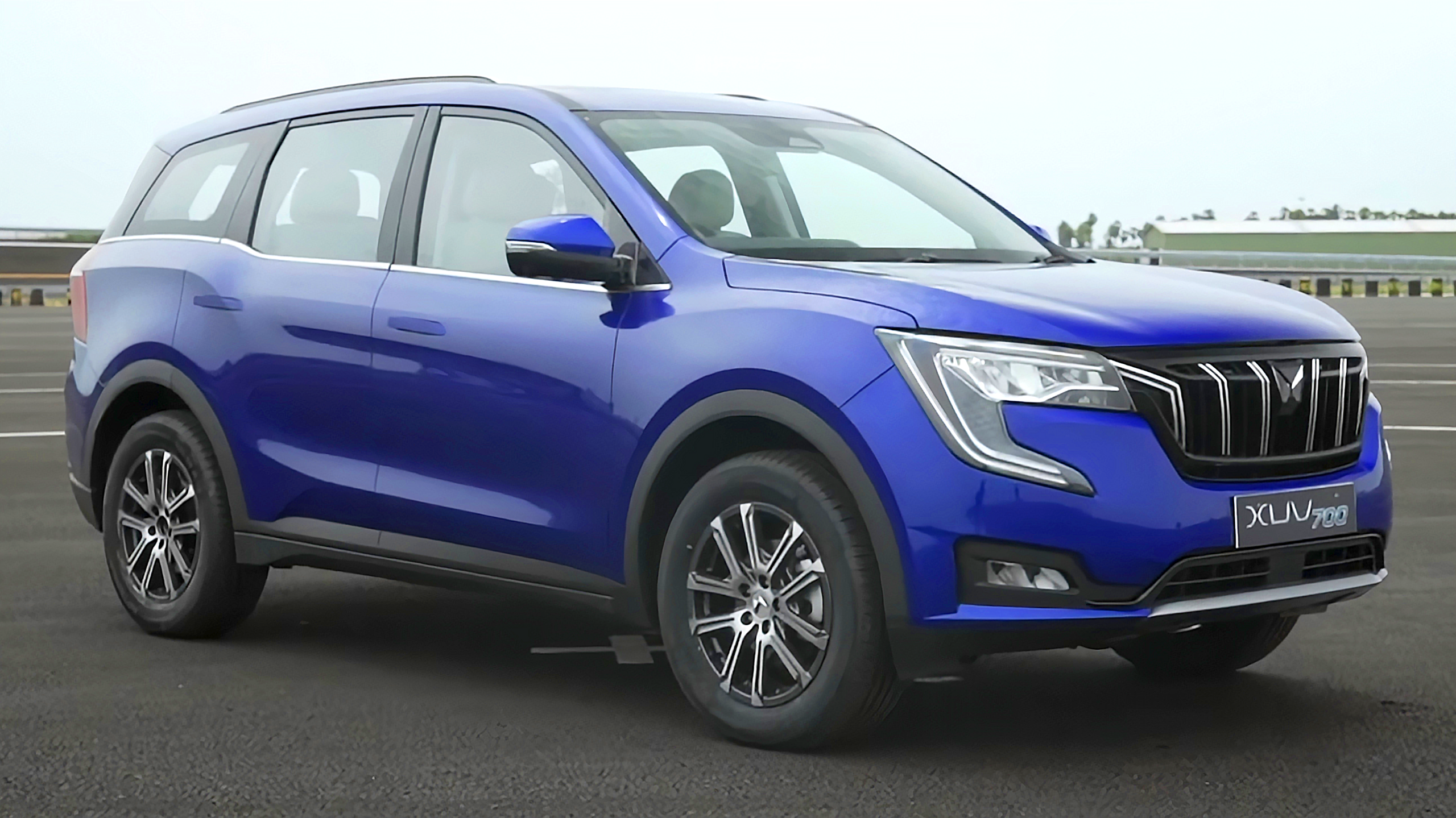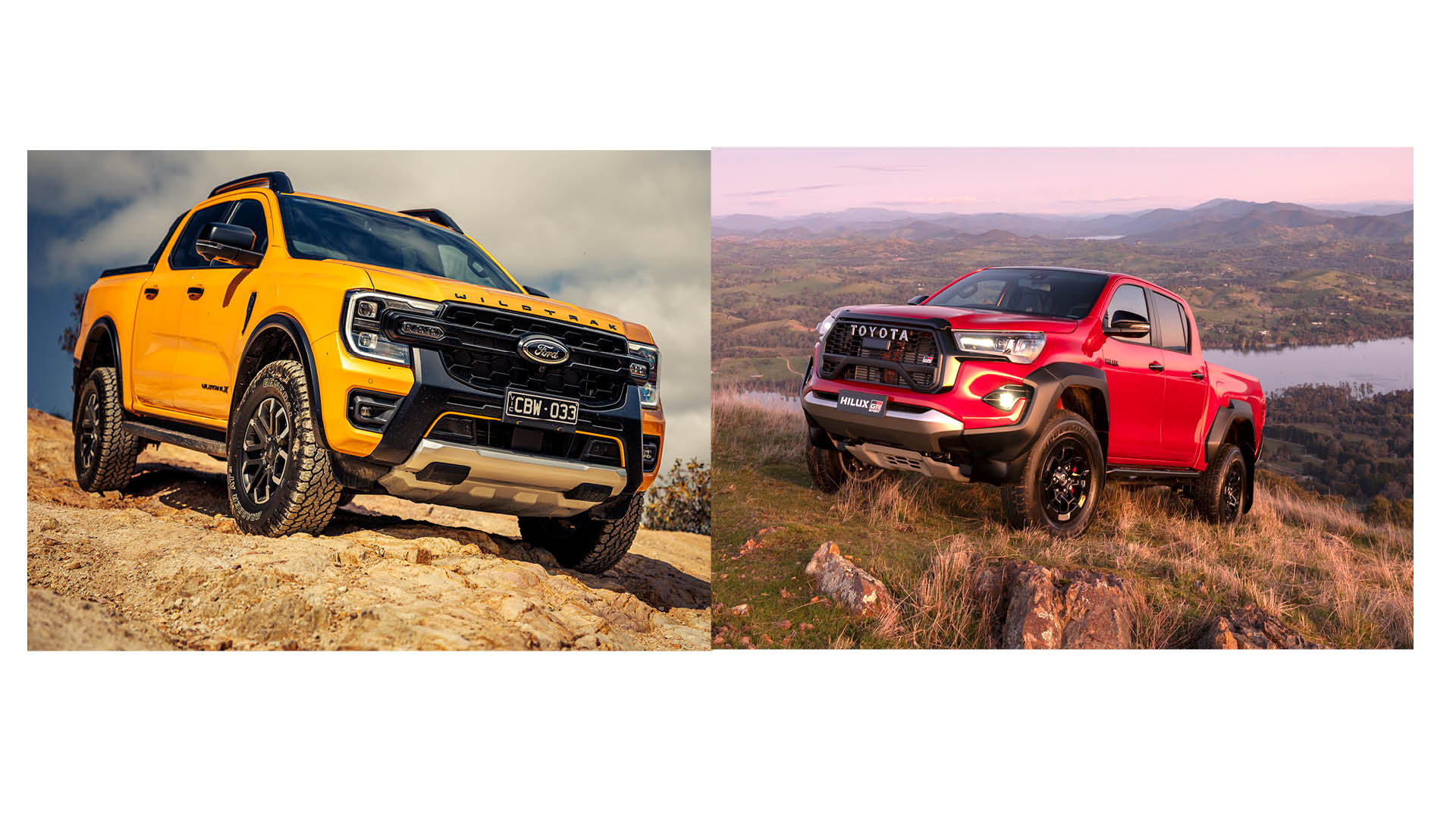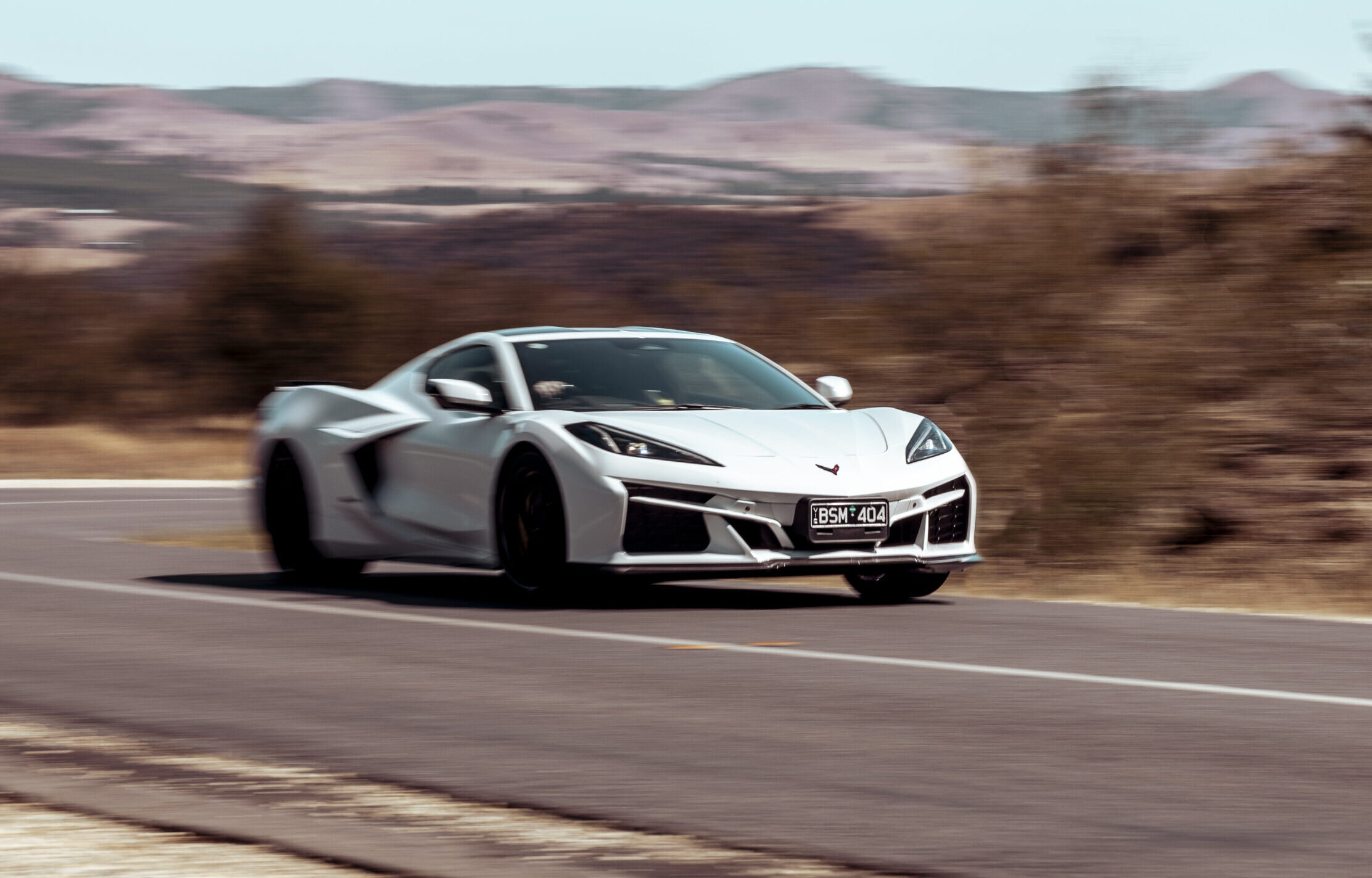Score breakdown
Things we like
- Punchy performance from turbo petrol V6 and 8-speed auto
- Lovely ride in Comfort, confident performance in Sport
- Spacious second and third rows in 7-seater wagon, luxurious in 6
- Big leap in interior technology and safety systems
- New Coupe variant has the lines to match the outputs
Not so much
- That turbo petrol six is now the only engine on offer
- Only one trim level left, too
- The result? A huge jump in price
- If you love gadgets, note: Carplay & Android are still wired only
The Genesis GV80 is one of the best-regarded models in its class among the Wheels team, with the pre-update 2023 model finishing third in our recent eight-car large luxury SUV test – outclassed only by the BMW X5 and Volvo XC90. That’s good company.
In refreshed 2024 form, the big wagon-style SUV is joined by a new GV80 Coupe body style, at last leaping onto the trend that has seen similar models introduced in other premium line-ups.
Genesis says it expects the Coupe to represent around 30% of GV80 sales in 2024. Last year, GV80 sales topped out at 403.
Across the 2024 range, light styling tweaks are on the menu, along with an expansive new screen across the dash – serving as main display and driver’s instrument cluster in one uninterrupted curved panel. A number of comfort and safety upgrades round out the tweaks for 2024.
Sounding good so far? Well, there’s a $30K catch. Read on.
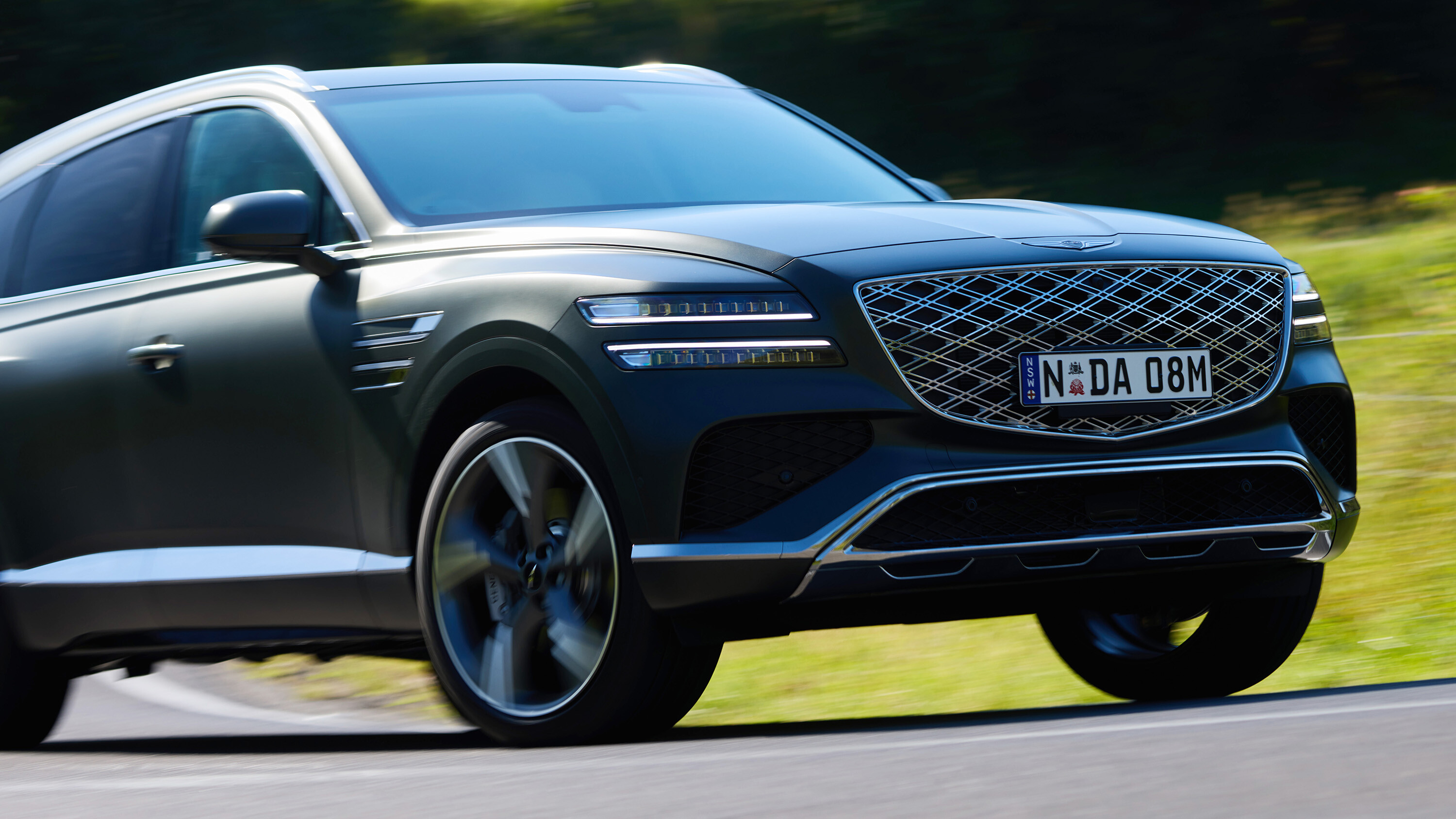
PRICING & FEATURES
Prices have only gone in one direction for the GV80 over the past couple of years, while the number of trim grades and packs has shrunk considerably – although Genesis insists the latter is in keeping with existing buyer preferences.
Some 95% of buyers previously opted for the luxury package, and Genesis says it is “certain that customers would also consider a better powertrain option as well”.
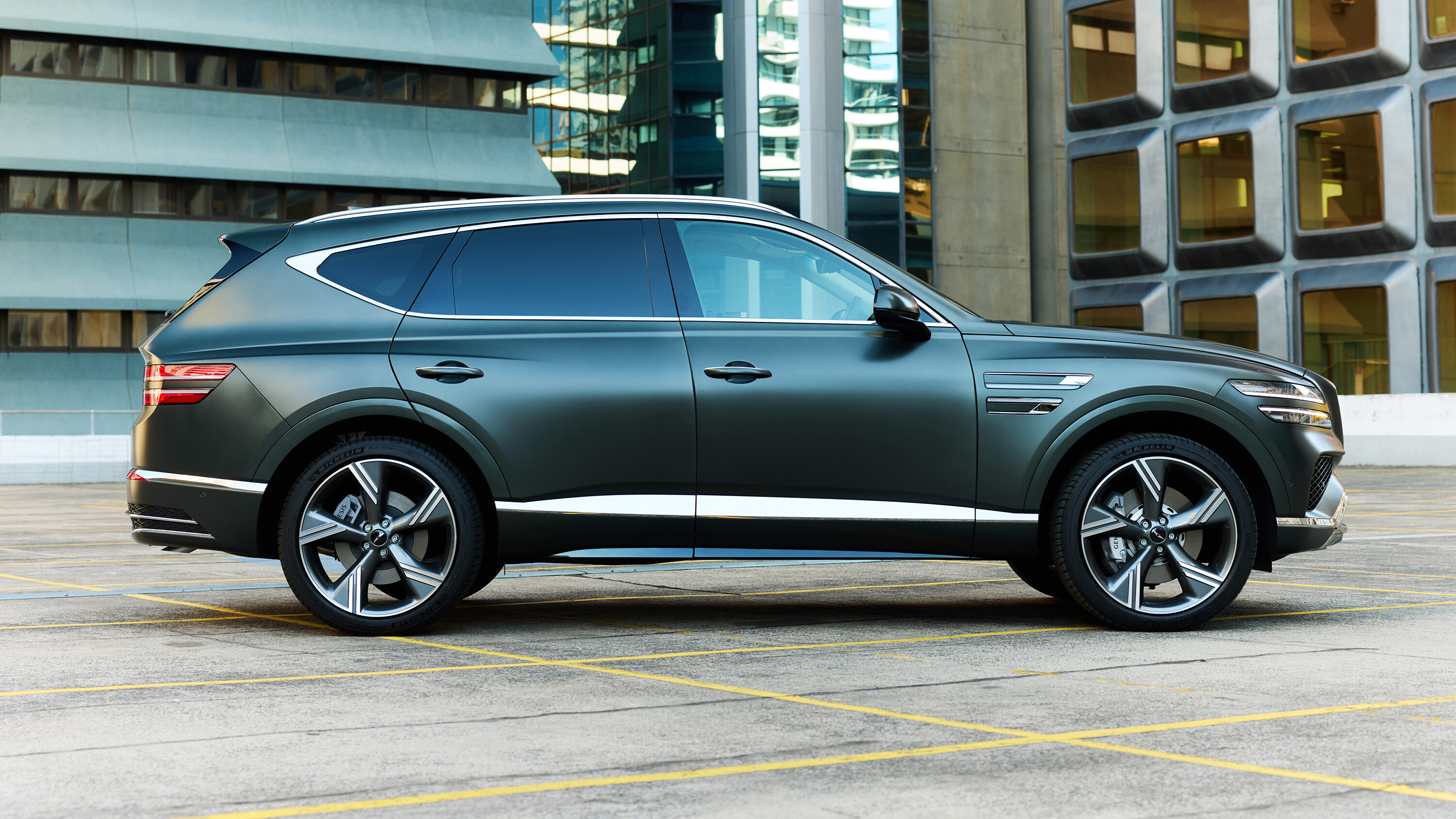
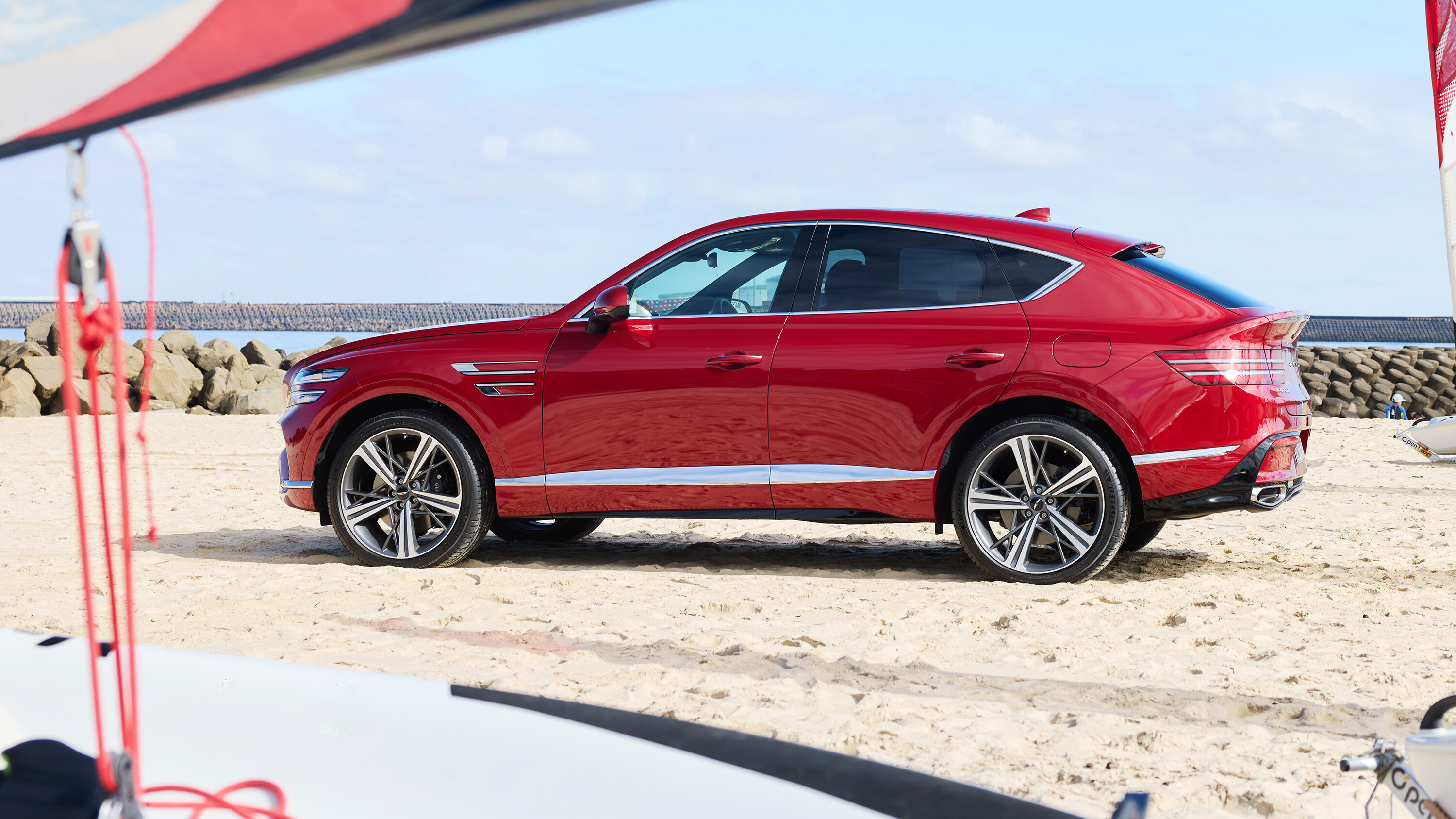
Bye bye baby…
There’s no longer a 2.5-litre turbo petrol RWD or AWD model ($90K and $95K last year), and the 3.0-litre diesel ($105K in 2023) has also recently departed, while the deletion of cheaper trim grades means the 279kW/530Nm 3.5 turbo petrol V6 previously available from $110K is now much more expensive.
For clarity, the diesel is no longer offered anywhere in the GV80, and the 2.5 turbo petrol has simply been deemed unsuitable for Australian tastes, “in a vehicle of that size”. (If your tastes differ, you’ll find engines of this size among the GV80’s German rivals.)
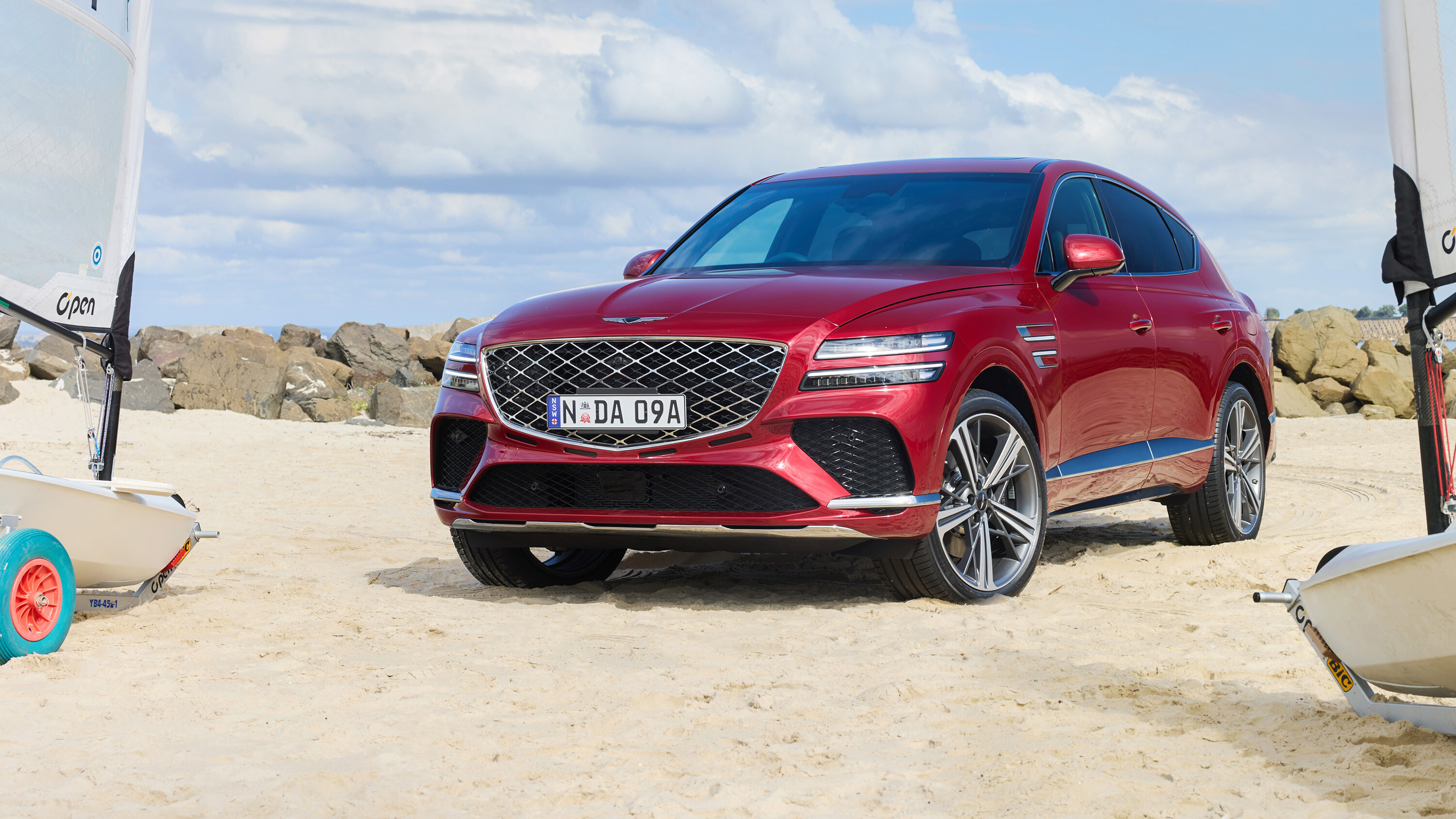
Last powerplant standing
For 2024, the now exclusively V6 petrol-powered AWD (‘3.5T-GDi AWD’) GV80 range is priced from $130,000 for the seven-seat wagon, $133,000 for the six-seat wagon (think business-class vibes in the second row), and $136,000 for the newly introduced five-seat GV80 Coupe.
The updated models aren’t without worthy enhancements, however. In the 7-seater, Genesis has added the Hyundai group’s clever Highway Driving Assist 2 and Remote Smart Parking Assist 2 systems, along with the following key upgrades.
Highlights
| GV80 7-seat u2013 $130,000 | |
|---|---|
| 27-inch OLED integrated cluster + nav | 18 speaker B&O Premium Audio |
| 12-inch Head Up Display | Genesis Connected Services + OTA |
| LED headlights: Multi Lens Array | Dynamic Welcome Light |
| Intelligent Front Lighting System | 22-inch alloy wheels |
| Nappa leather interior | 18-way power front seats with ergo motion |
| GV80 6-seat u2013 $133,000 u2013 adds | |
|---|---|
| 2 x individual second row seats with power sliding seat base | Fixed second row centre console with wireless charger & storage |
| GV80 Coupe 5-seat u2013 $136,000 | |
|---|---|
| Unique 22-inch alloy wheels | Carbon fibre interior trim |
| Dual rear exhaust tips | Exclusive steering wheel |
| Black brake calipers | Alloy pedals |
The technology continues with digital keys, fingerprint detection, UVC disinfection trays, heated seats and armrests, a cabin fragrance system, and a Bang & Olufsen sound system.
The touch-sensitive heating and air-con controls have been moved up the dash, and the centre console features a redesigned crystal gear shift.
Ergonomic improvements continue with a new wireless smartphone charging pad, bigger cup holders, and a physical volume/tune adjustment knob.
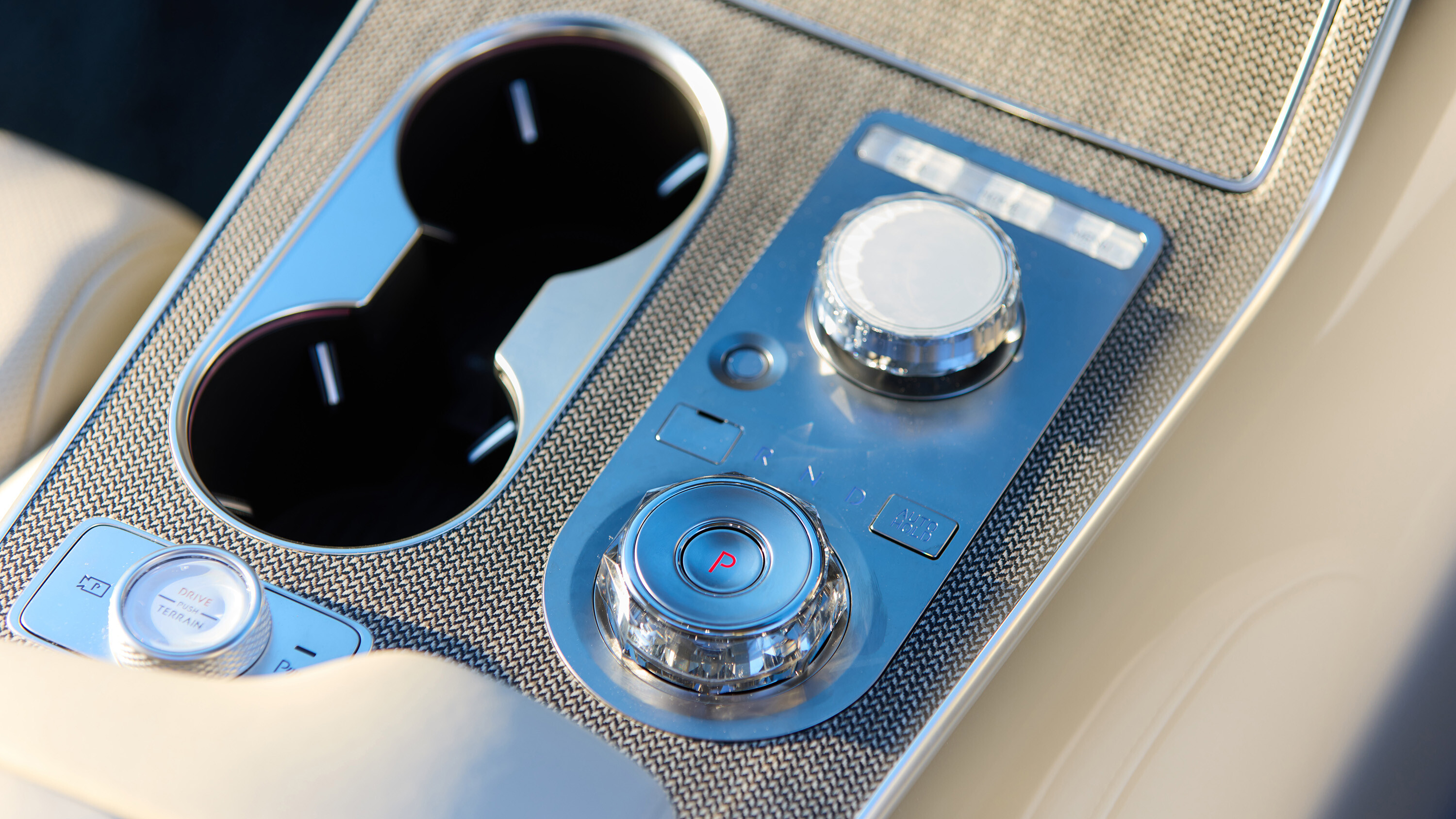
SAFETY
As a premium family hauler, the big GV80 is well-equipped on the safety front.
10 airbags are standard in all models, while active safety systems include second-generation forms of Highway Driving Assist, Lane Keep Assist and Remote Smart Park.
| 2024 Genesis GV80 safety | |
|---|---|
| Anti-lock Braking System (ABS) | SMART Cruise Control (SCC) u2013 including: |
| Brake Assist System (BAS) | Stop & Go function (SCC w/ S&G) |
| Electronic Brake-force Distribution (EBD) | Machine Learning function (SCC w/ ML) – Based on Driving Style |
| Hill-start Assist Control (HAC) | Drive Mode based function |
| Multi Collision Brake (MCB) | Overtaking Acceleration Assist function |
| Traction Control System (TCS) | Surround View Monitor (SVM) including; |
| Vehicle Stability Management (VSM) | 3D Surround View function |
| Dynamic Chassis Control | Driving Rear-View Monitor (DRM) function – Rear view image on command |
| Blind-Spot View Monitor (BVM) | Parking Distance Warning function w/ dynamic guidelines & guidance display |
| Driver Attention Warning (DAW), including; | Car wash entering mode |
| Leading Vehicle Departure Alert | Tailgate guide-line mode / Trailer connection mode |
| Forward Collision-Avoidance Assist (FCA), including; | Parking Distance Warning – Forward/Side/Reverse (PDW-F/S/R); with guidance display |
| Car/Pedestrian/Cyclist detection (FCA – CAR/PED/CYC) | Remote Smart Parking Assist (RSPA), via Smart Key inside or outside of vehicle, including; |
| Junction Turning/Junction Crossing function (FCA – JT/JC) | Perpendicular, Parallel & Diagonal reverse parking and Forward/Rearward parking functions |
| Lane-Change Oncoming/Lane-Change Side function (FCA – LO/LS) | Automatic braking when object is detected in vehilces path |
| Evasive Steering Assist function (FCA w/ ESA) | AIRBAGS: 10 u2013 including:u00a0 |
| Blind-Spot Collision Avoidance-Assist – Rear/Side (BCA-R/S) | Front airbags – Driver & passenger |
| High Beam Assist (HBA) | Front centre side airbag |
| Highway Driving Assist (HDA) including; | Knee airbag – Driver |
| Distance control, Lane following control and Lane Change Assist Control | Side (thorax & pelvis) airbags – Driver and front passenger |
| Intelligent Speed Limit Assist (ISLA) | Side (thorax) airbags – 2nd row outboard passengers |
| Lane Keeping Assist – Line/Road-Edge (LKA-L/R) | Side curtain airbags – All rows |
| Lane Following Assist (LFA) | OTHER FEATURES |
| Pre-active Seat Belt (PSB) – Front seats | Emergency Stop Signal (ESS) |
| Rear Cross-Traffic Collision Avoidance-Assist (RCCA) | Steering wheel with Haptic feedback – Genesis Active Safety Control functions |
| Rear Occupant Alert (ROA) (sensor type) | Manual Speed Limit Assist (MSLA) |
| Safe Exit Assist (SEA) | Tyre Pressure Monitoring System (TPMS) – Individual tyre readout |
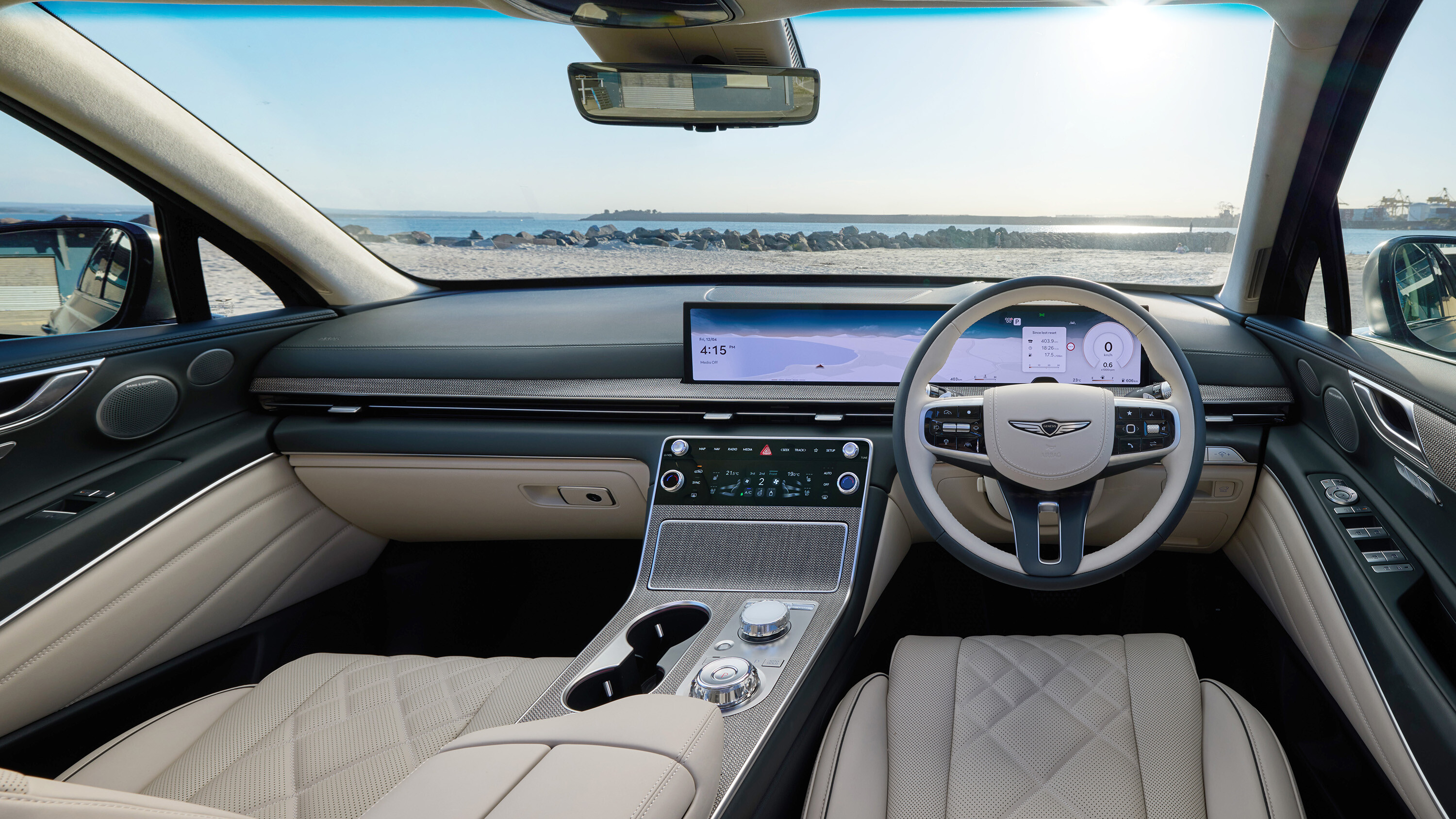
IN THE CABIN
Interior options vary for the GV80 line-up, ranging from seven- and six-seat forms in the wagon and a more conventional five-seat configuration with the lifestyle-focused Coupe.
In all three seating configurations, the front row is effectively identical in layout. What’s shared across each is a clear sense of luxury that would comfortably leave any ‘Pepsi Challenge’ contestant deeply confused.
Nappa leather trim and suede headliner do plenty to live up to the premium promise, as do trims like open-pore wood or genuine carbon fibre (Coupe only).
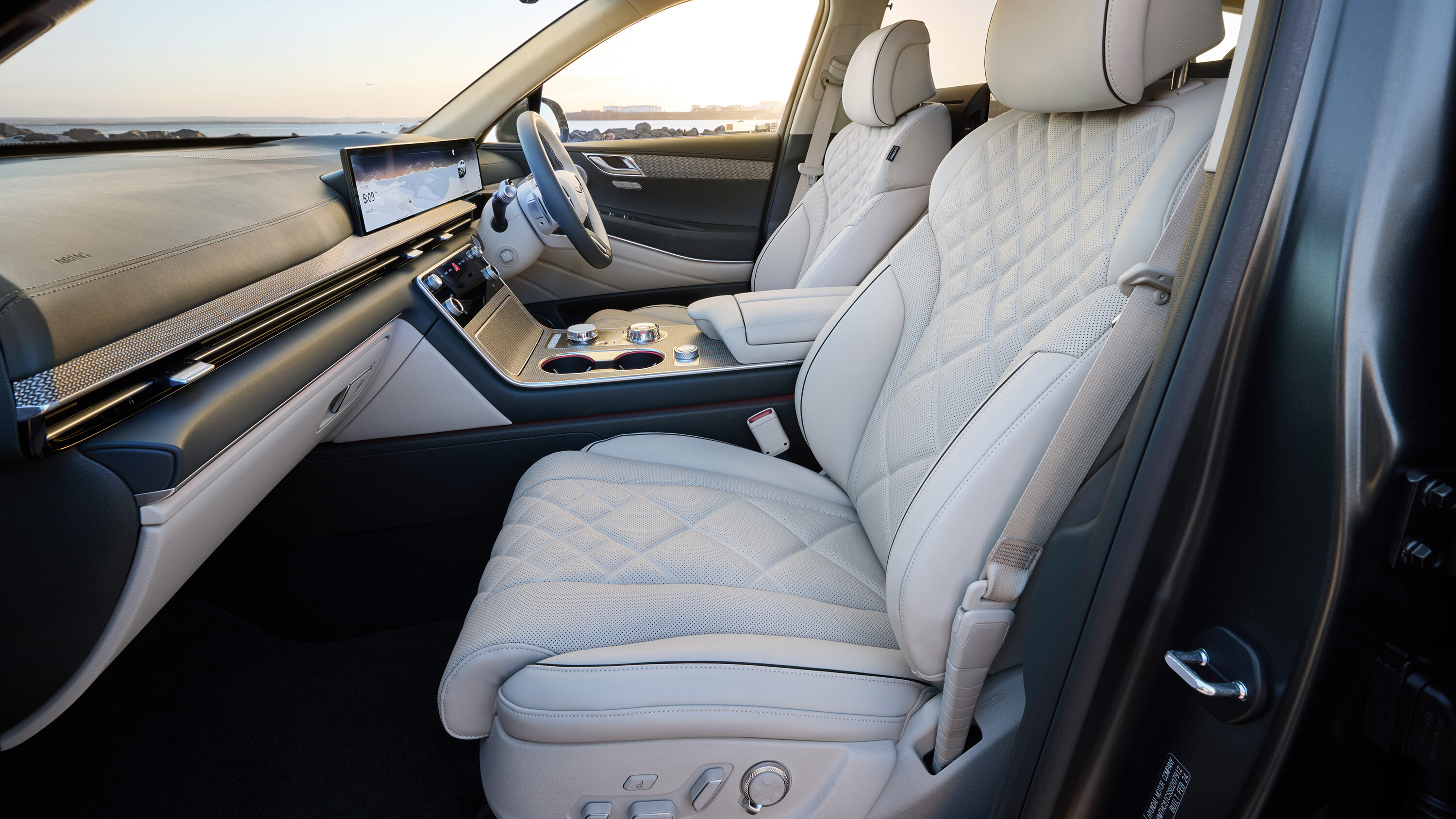
As a seven-seater, the GV80 wagon offers loads of leg and head room in the second row, which also boasts recline and slide functions as needed.
Of course, the two seats in the final row will appreciate the middle row’s ability to slide forward, improving comfort in an otherwise cramped caboose.
Available interior upholstery colours include Slate Grey with Bordeaux Brown, Smoky Green with Earth Brown, Smoky Green with Vanilla Beige, Black Mono, and Ultramarine with Glacier White.
Trim options include two genuine wood options in Olive Ash and Newspaper, along with the woven fabric Basalt and Linen styles.
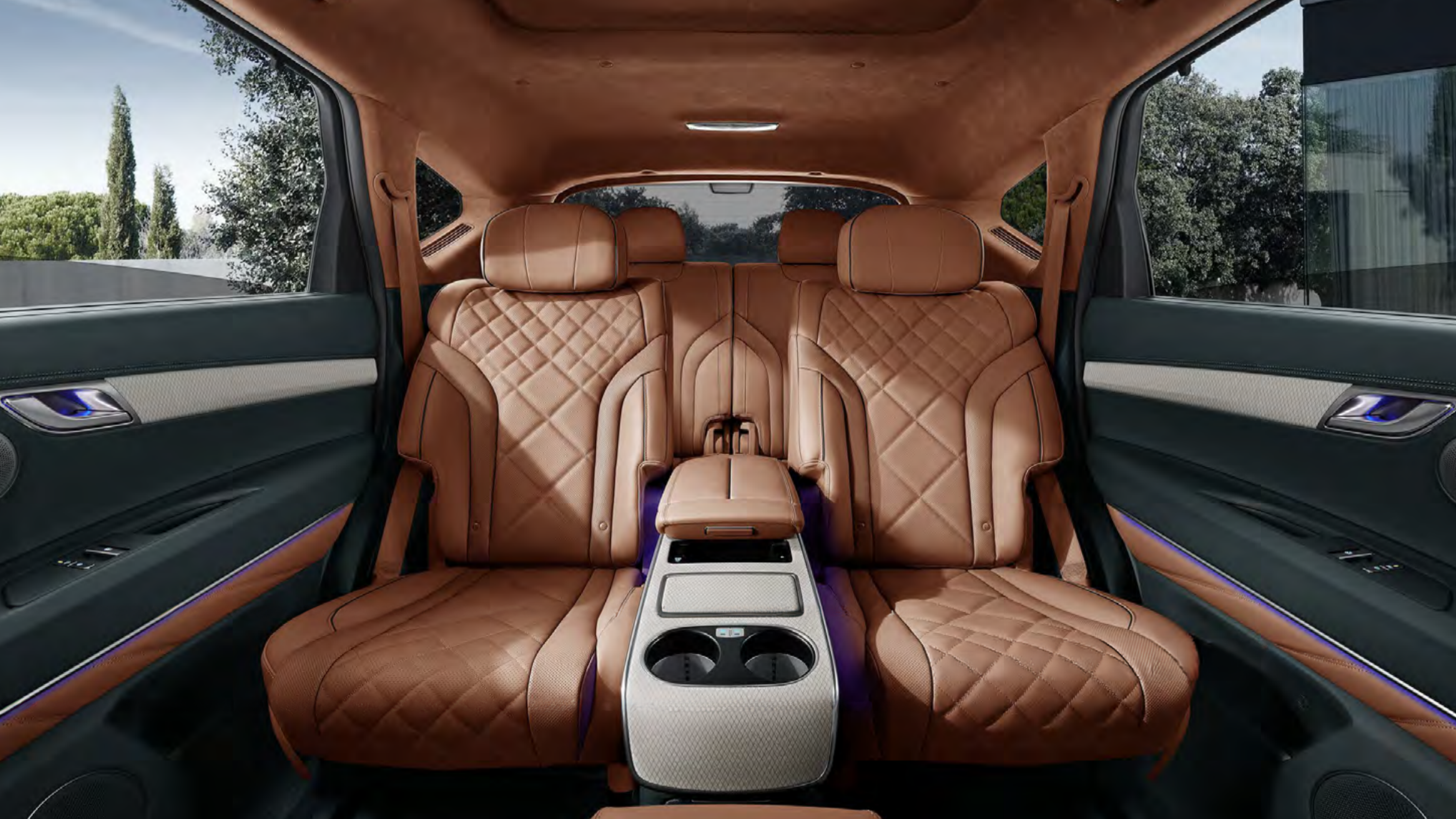
Opting for the six-seater might suggest you’re either planning to spend all your time in that deuce-pew second row – or else you’re simply a very generous pilot.
Whatever the case, whomever ends up in business class will be treated to a large entertainment screen in the rear of the front seats, replete with Bluetooth connectivity to enjoy the finest streaming content in silence.
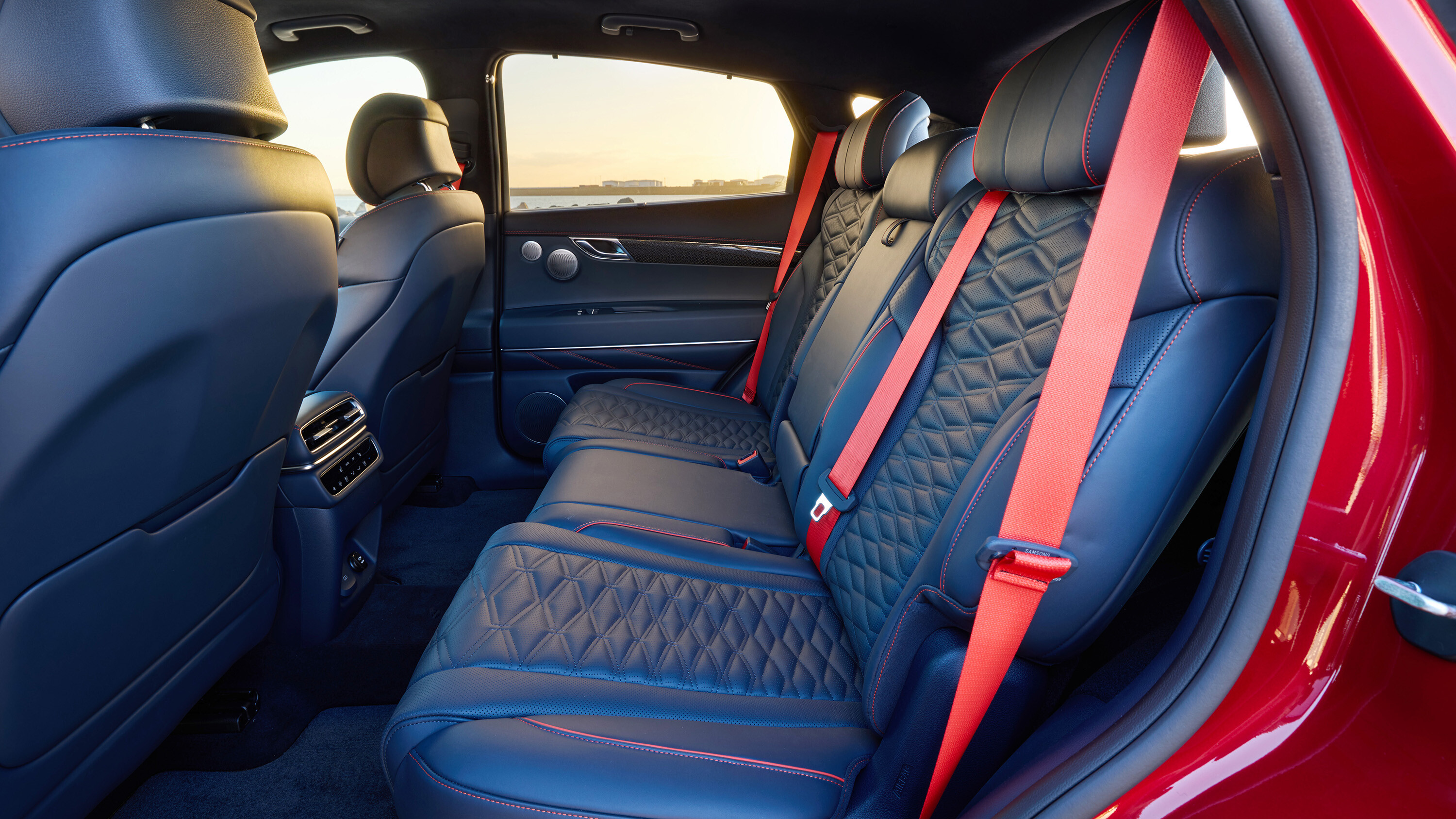
Then there’s the Coupe, entering as the lone five-seater in a newly streamlined line-up.
Think of the seven-seater with its second-row seats pushed right back, and that’s the sort of generous space you can anticipate back there.
Headroom is decent too, despite the tapered look to the roofline when viewed from the roadside.
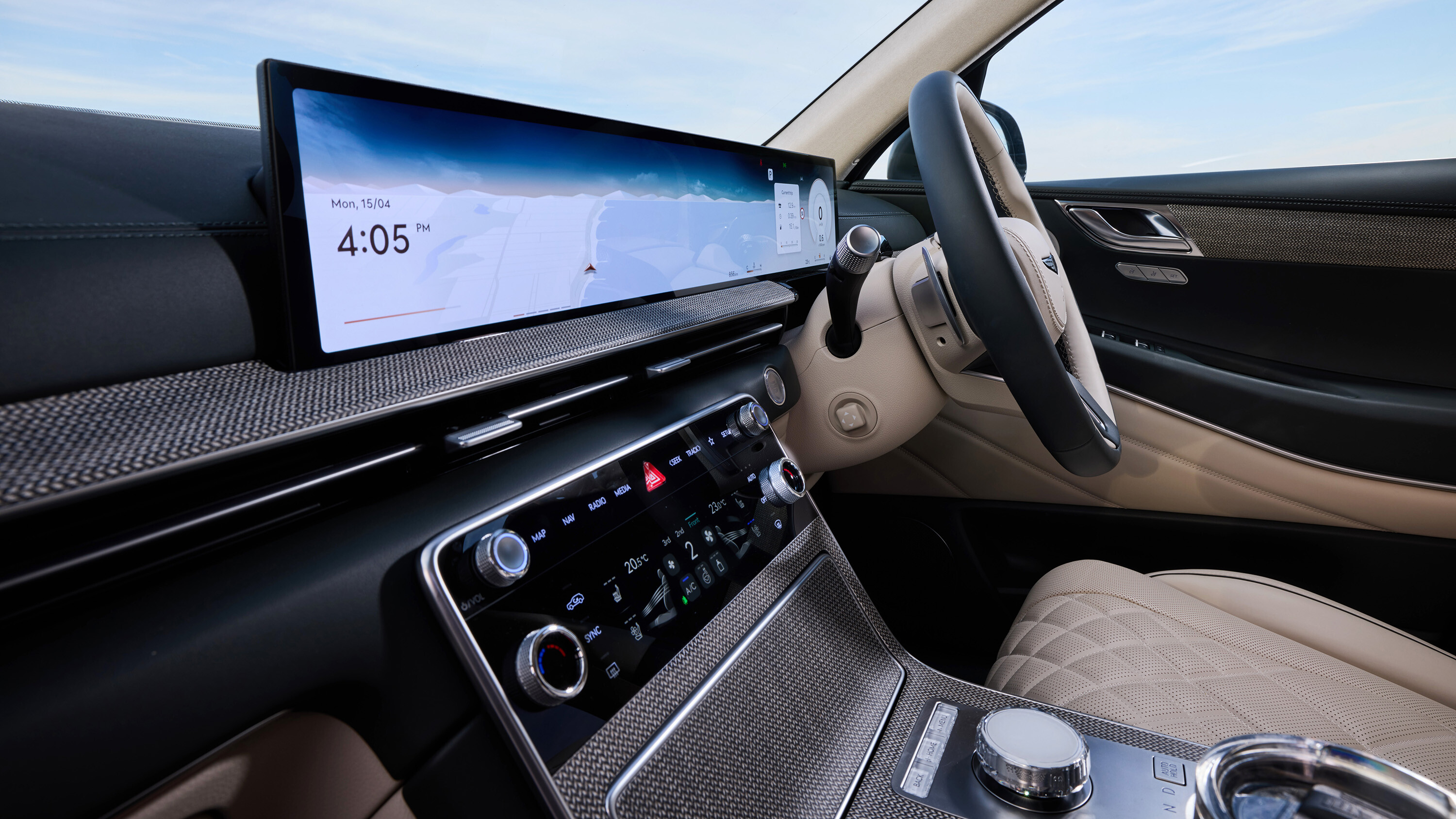
Technology in the cabin
On the tech front, a couple of things to consider: The infotainment system – despite its mature looks, broad feature set and fast response – is already out of date.
Buying a Kia EV9 (or any incoming new Hyundai) would get you a fresher version of the group’s interface, including over-the-air updates and wireless connectivity for Apple Carplay and Android Auto. (You might also, like me, be left bemused at the presence of a wireless charging pad despite having to plug in for the aforementioned phone mirroring systems.)
It’s also worth noting though that the two 14.7-inch screens in the rear of the six-seater are effectively isolated devices, with no option to synchronise services and enjoy a shared experience. Of course, you can always just hover a finger over the play button and count to three…
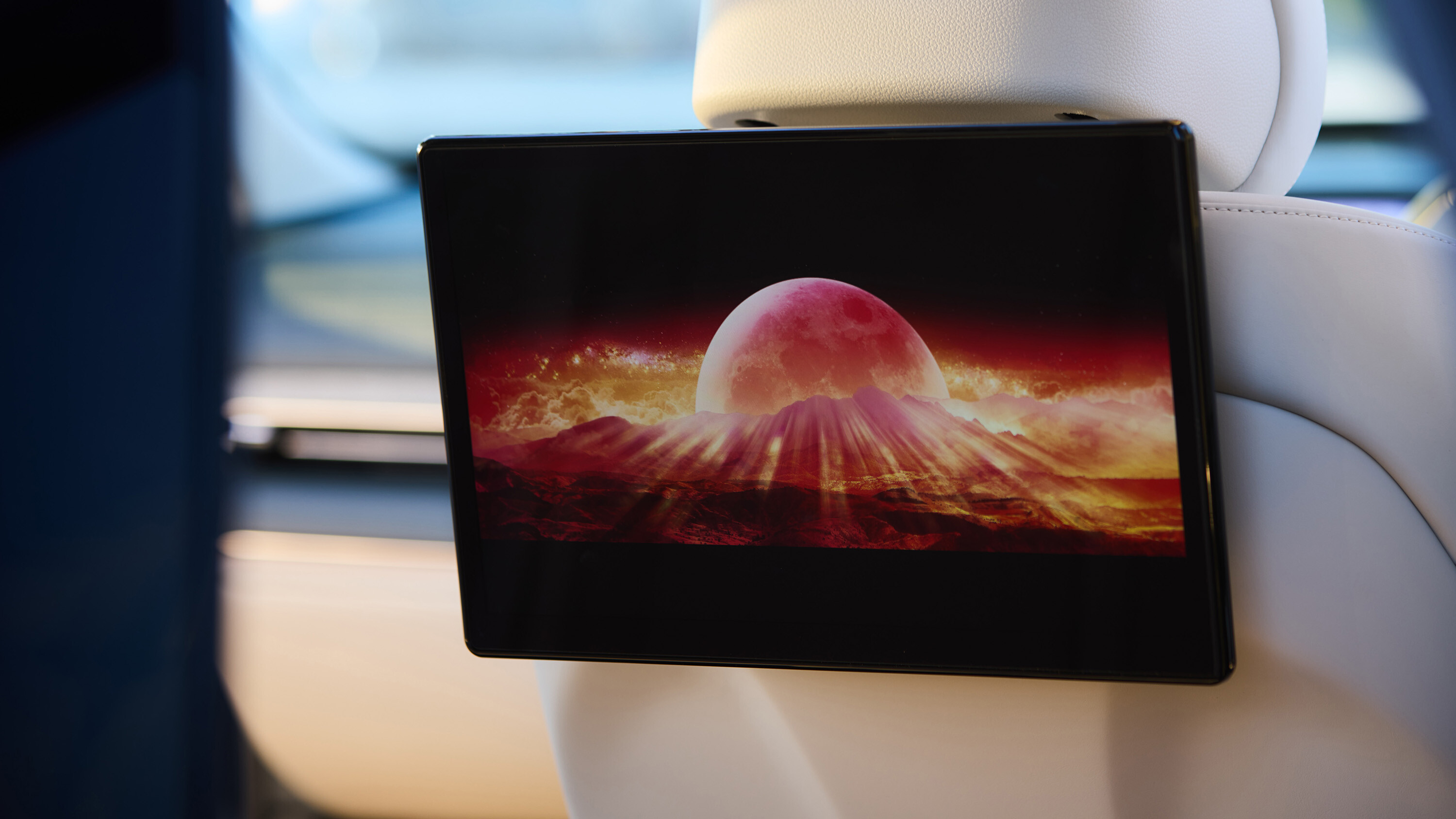
Boot space
The ‘wagon’ GV80 SUV offers 735 litres of boot space in five-seat configuration, while the GV80 Coupe’s tapered roofline sees capacity drops to 644 litres.
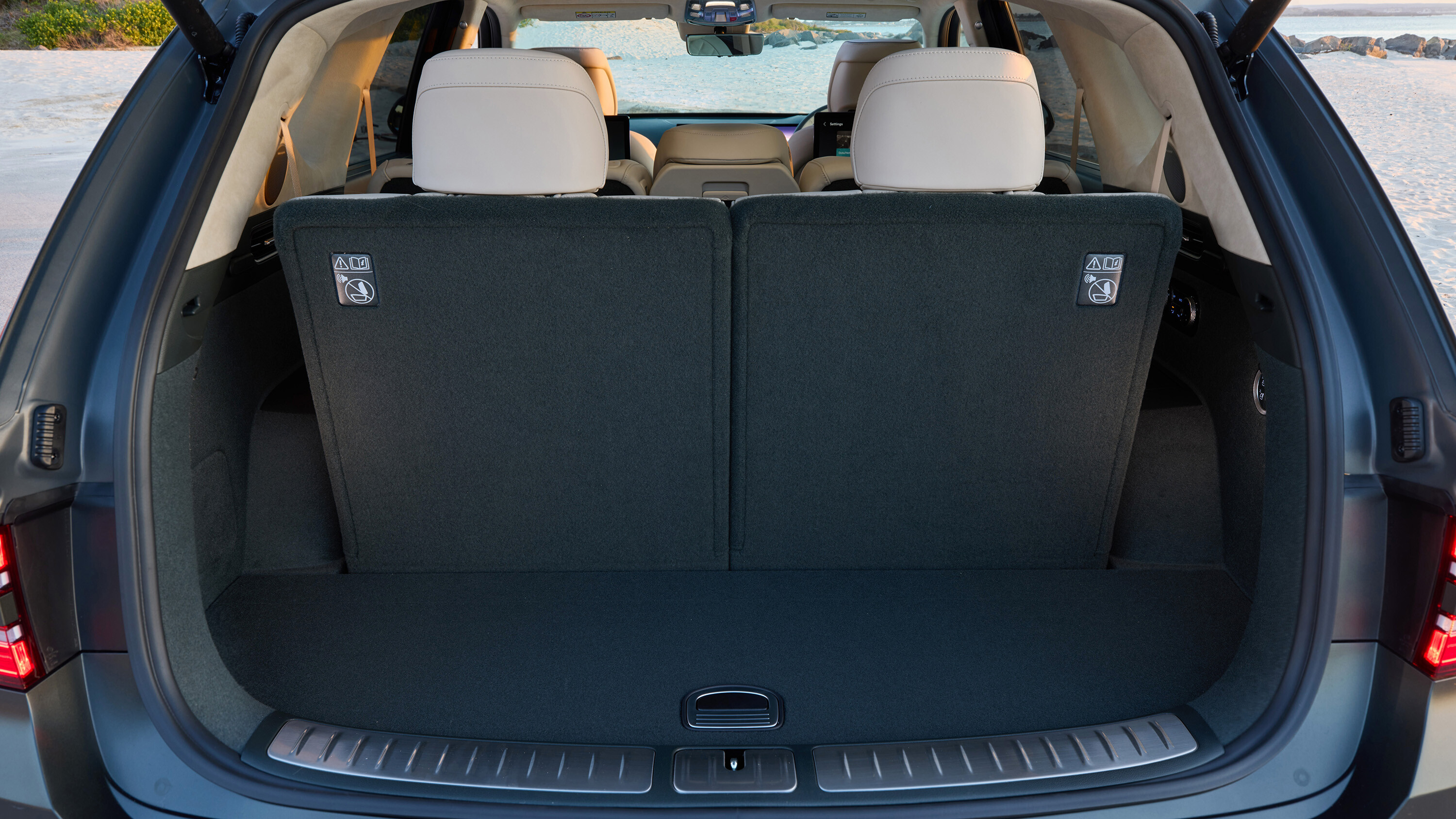
ON THE ROAD
The updated GV80 introduces no changes in its driving setup, but that’s no bad thing. At launch, Genesis’s biggest SUV set itself apart as a luxurious offering not only in cabin feel, but also in ride and comfort – thanks in large part to a local suspension tuning program.
Steering feel is confident and communicative, acceleration is eager (in Sport mode you’re looking at peak torque available from a low 1300rpm), braking is smoothly progressive, and body control is impressively planted in corners despite favouring comfort on Australia’s often trashy roads.
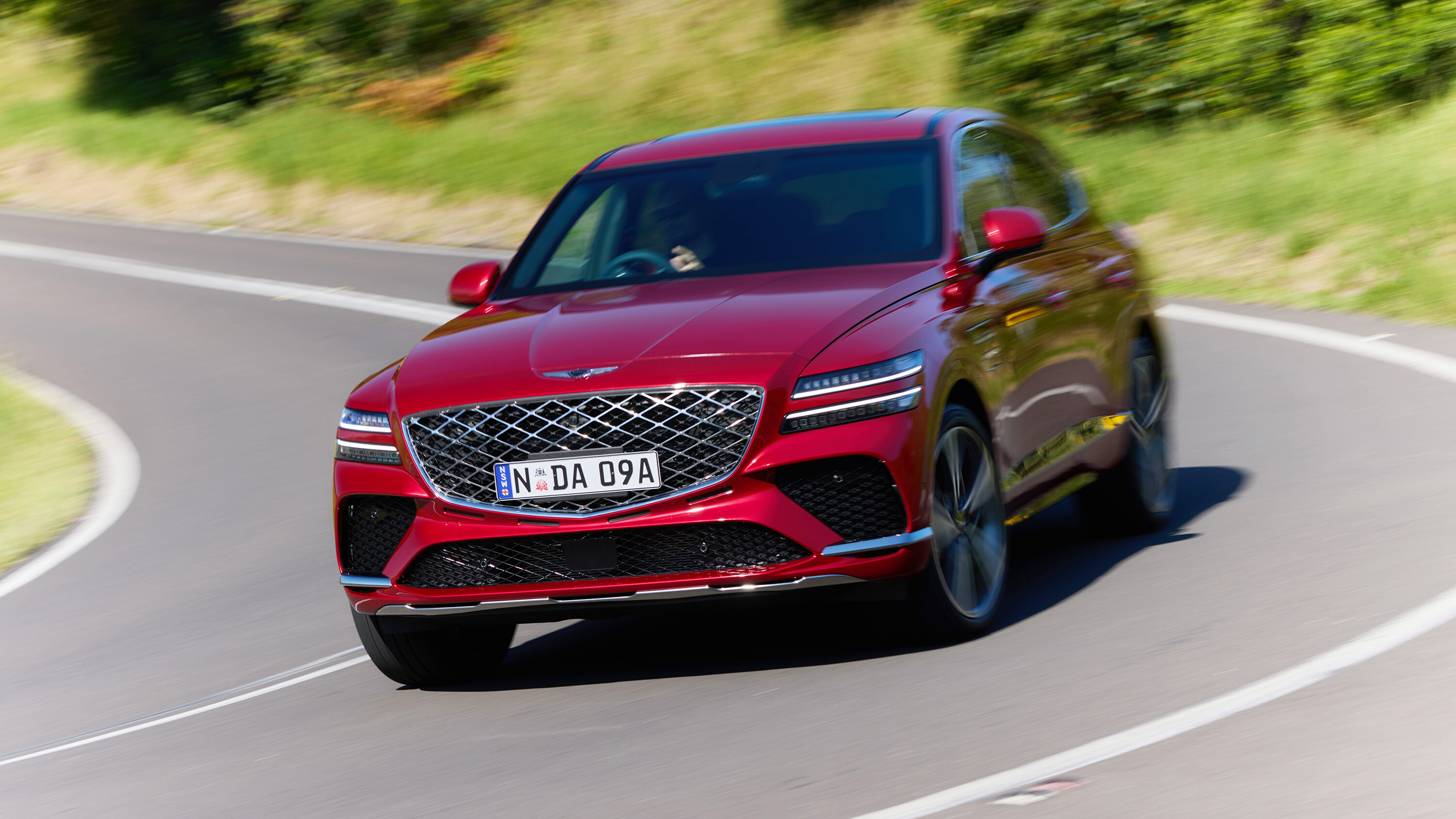
Speaking of the same setup in 2021, Tim Robson said: “It steers with impressive accuracy, tames broken surfaces with aplomb despite its cartoonishly large rim spec and is impressively quiet, thanks in the main to acoustic glass and the SUV-spec Michelin Pilot Sport tyres.”
Helping all of that is an ‘adaptive control suspension’ system that uses a front-facing camera to read the road and prime the adjustable dampers for bumps ahead.
Things we like
- Powerful turbo six and responsive eight-speed auto (torque converter) delivers confidence in every mode, throughout the rev range.
- The wide-screen infotainment system is crisp, fast and feature-rich
- Storage options for knicknacks in the cabin are plentiful
- Big boot!
Not so much
- Big car, big engineu2026 thirsty tank.
- Yes the infotainment is quite good, but itu2019s already old u2013 and wired phone mirroring feels anything but premium
- The irritatingly audible over-speed alert can only be deactivated every trip, rather than permanently, but this is arguably a necessary u2018evilu2019 of ensuring safe driving
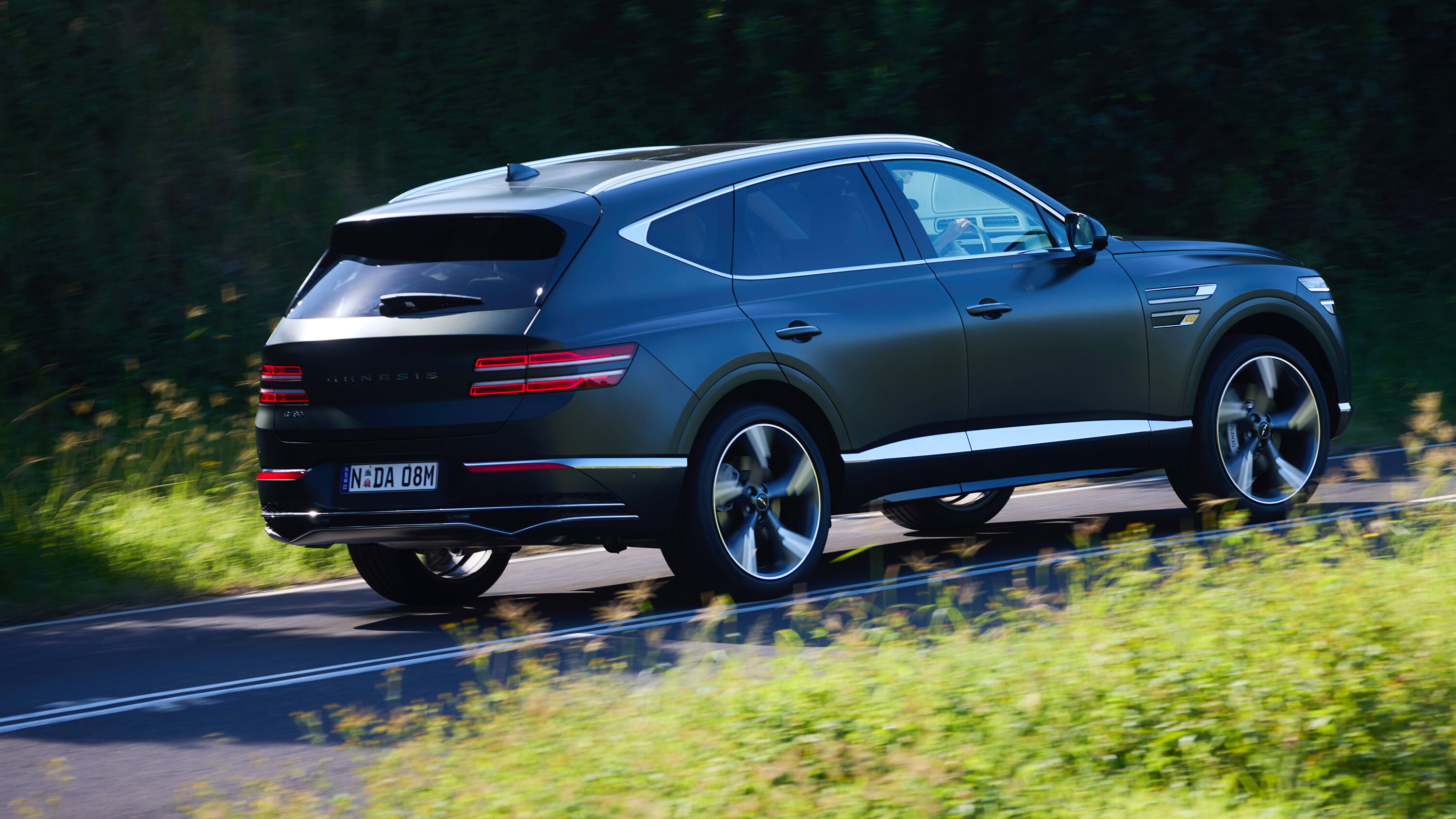
Fuel consumption
Like all big-chested large cars, the GV80’s petrol six slurps fuel.
In eco mode, I averaged around nearly 14L/100km in mixed driving, achieving no better than 11.2L/100km on a long highway drive.
And, with no V6 diesel or four-cylinder petrol options left in the range, you can like it or lump it. It’s worth noting though that Wheels teammate Alex Inwood averaged around 11-12L/100km in his three months with the V6 petrol GV80 back in 2021. See that story linked below.
Click here for more detailed expert opinions of the Genesis GV80’s on-road qualities.
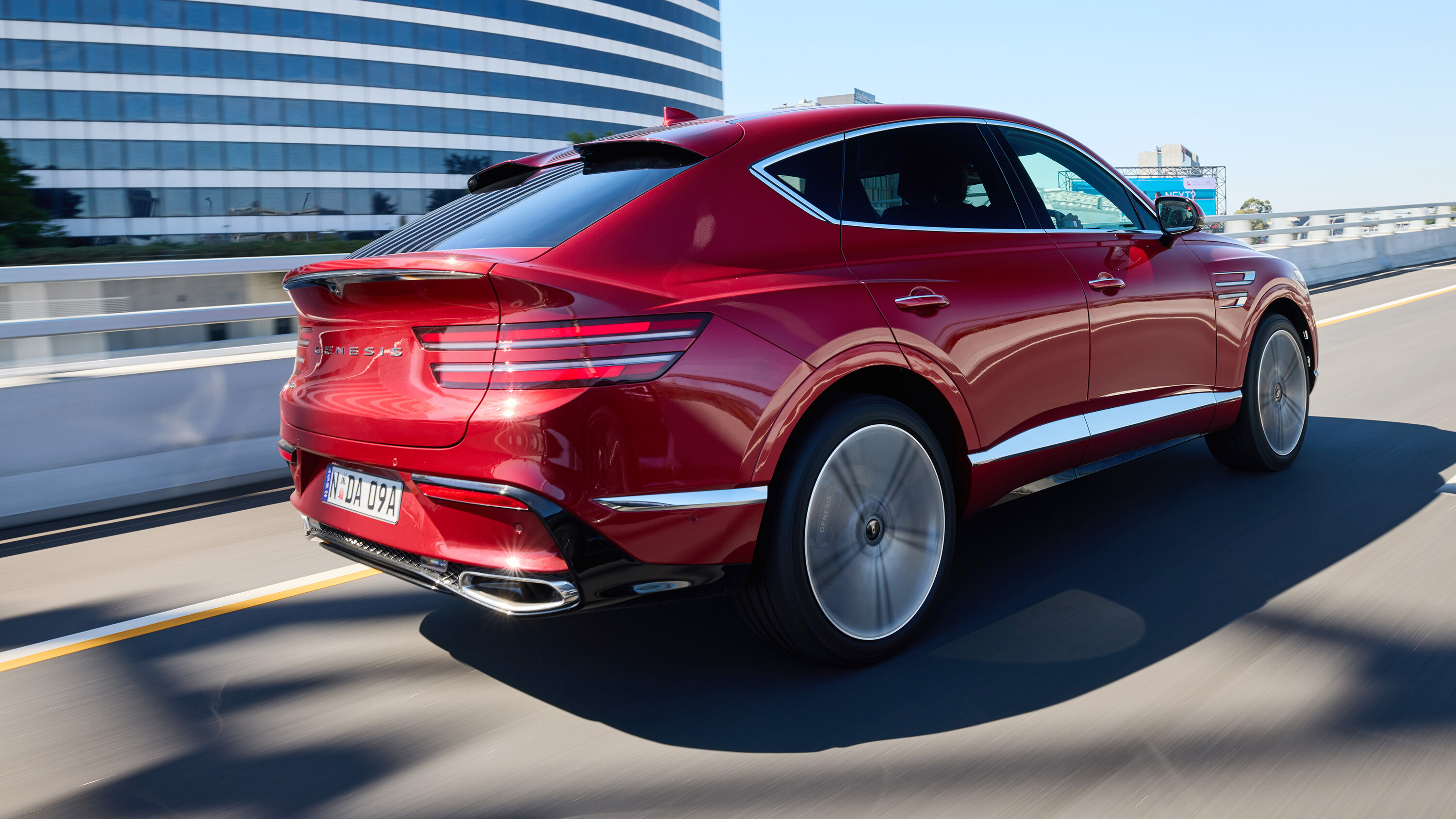
KEY RIVALS
Options in the large luxury SUV segment are surprisingly plentiful, ranging from the Audi Q7 and Q8 to the BMW X5 and X6, the Mercedes-Benz GLE wagon and Coupe, the Lexus RX, the Jaguar F-Pace and the Volvo XC90.
Spend up and you can add options like the Porsche Cayenne and Maserati Levante, or newer electric alternatives like the BMW iX, Audi Q8 E-Tron, Lexus RZ and the Mercedes EQE SUV. The Volkswagen Touareg can also be considered a rival in its higher-trim forms, and Mazda would like you to view the new CX-90 in the same light.
⬇️ READ: GV80 takes on XC90, CX-90, RX350, and BMW X5
Should I put the GV80 on my shortlist?
Absolutely. Whether new or used, the GV80 is a compelling option among its price and segment rivals – even in its newly streamlined petrol V6-only form.
I do wish the more fuel-efficient options were still on the menu, but as Genesis says, existing buyers for this car are clearly not of the same opinion.
In all, there is a clear sense here that unlike Nissan’s Infiniti offshoot or Honda’s America-only Acura – and perhaps even more so than Lexus in its modern form – Hyundai is out to win with its still new Genesis brand.
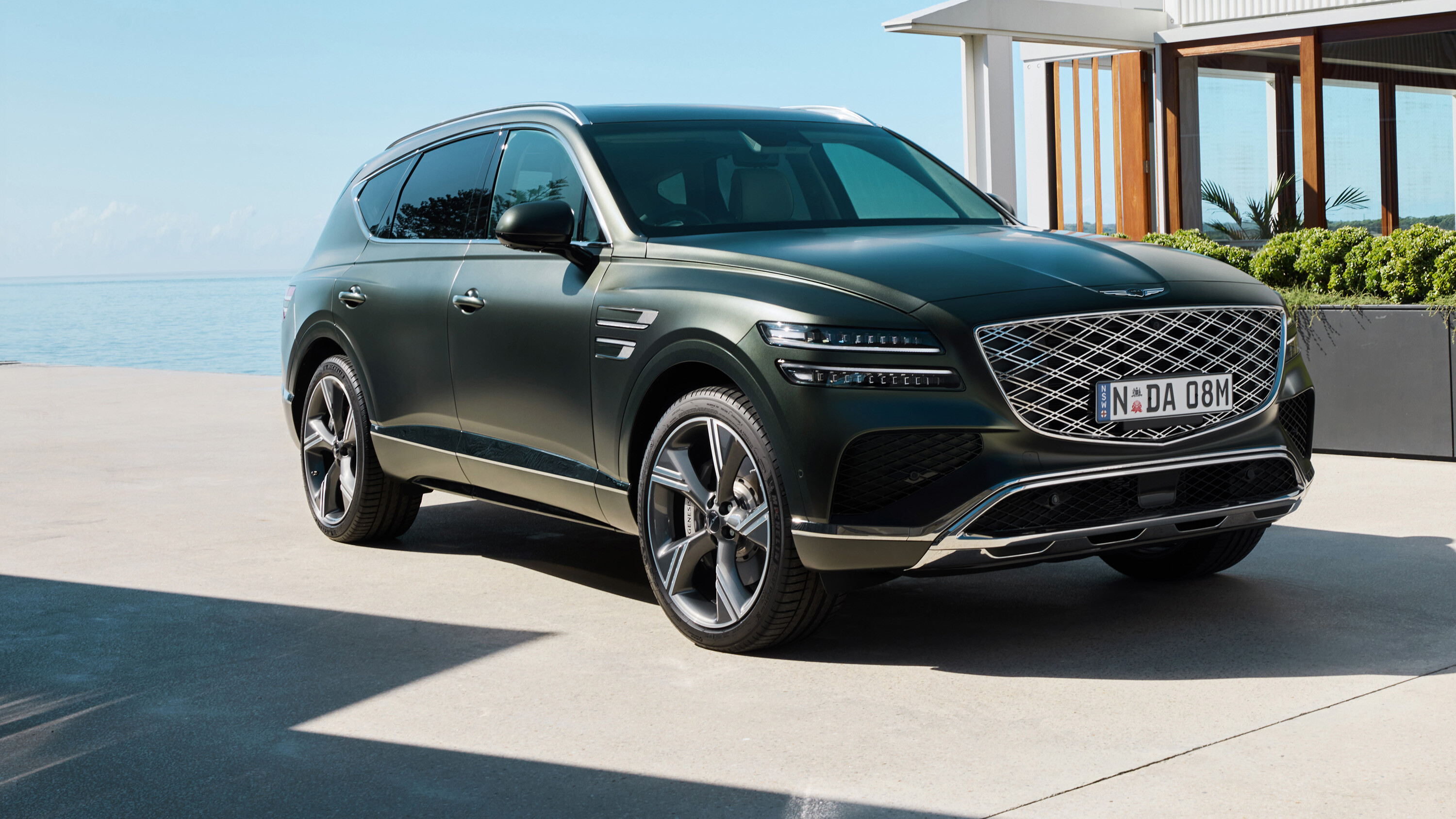
The GV80’s premium specification and feel is largely a match for the traditionally tempting Teutons, although BMW and Mercedes may still be the pick if your tastes lean towards extra clever (if sometimes overly complicated and novelty-like) features and comforts in the cabin.
For luxury in its most pure form, at a comparatively affordable price point, the GV80 deserves a look.
| 2024 Genesis GV80 pricing | |
|---|---|
| GV80 7-seat | $130,000 |
| GV80 6-seat | $133,000 |
| GV80 Coupe 5-seat | $136,000 |
| Prices exclude on-road costs | |
Score breakdown
Things we like
- Punchy performance from turbo petrol V6 and 8-speed auto
- Lovely ride in Comfort, confident performance in Sport
- Spacious second and third rows in 7-seater wagon, luxurious in 6
- Big leap in interior technology and safety systems
- New Coupe variant has the lines to match the outputs
Not so much
- That turbo petrol six is now the only engine on offer
- Only one trim level left, too
- The result? A huge jump in price
- If you love gadgets, note: Carplay & Android are still wired only


